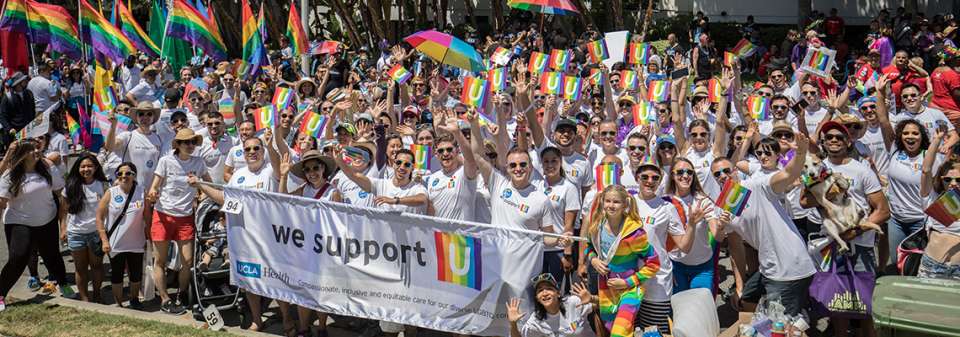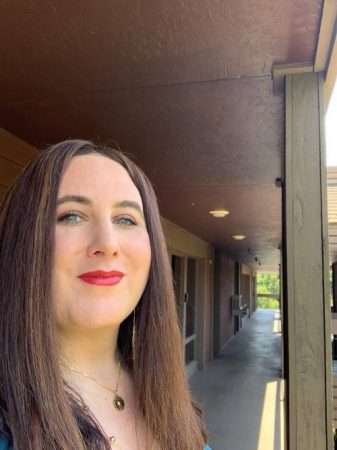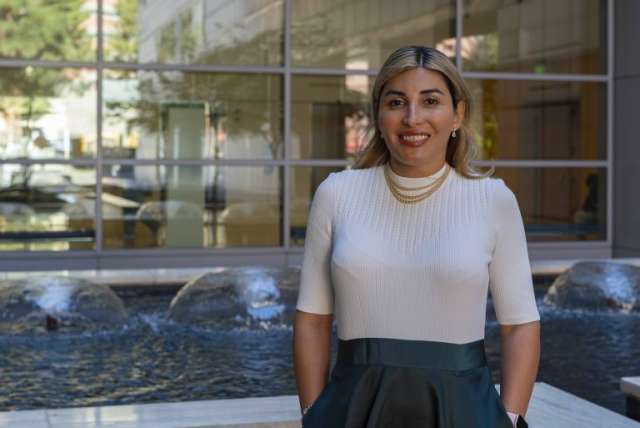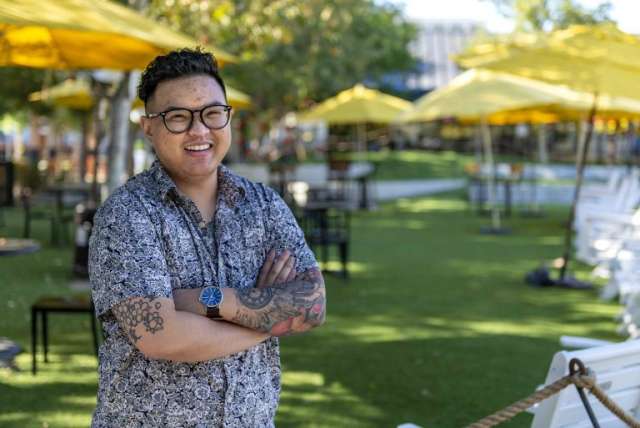Patient Stories
Find your care
UCLA Health is a safe and supportive environment for transgender and gender-diverse patients. Call 310-267-4334 to make an appointment.
Share Your Story
The UCLA Gender Health Program is committed to providing the highest quality of patient care. We take great pride in being able to share a few of our patients’ stories with you.
Would you like to share your UCLA Health experience with others? We’d love to hear from you.
For Patients of All Stripes
The UCLA Gender Health Program was established to provide a knowledgeable staff in a compassionate environment for transgender or gender-diverse people of all ages to receive health care. One couple that recently came to UCLA for pregnancy care with Dr. Valentina M. Rodriguez, an obstetrician/gynecologist at UCLA, knew from the outset their experience would be different from their past health-care interactions.

Chloe's Story
Chloe waited years — all her life, really — to see herself in the mirror. After undergoing facial gender-affirming surgery at UCLA Health, she finally can. “I just wanted to look like me,” says the 40-year-old New York native. The facial feminization surgery was performed by , a craniofacial plastic and reconstructive surgeon at UCLA’s Gender Health Program. Chloe shares her experience with facial feminization surgery and its effects on her well-being in a podcast series by Lemonada Media that centers on the lives of four transgender people in Los Angeles. Opening up about her transition for a global audience has been “an exercise in vulnerability,” she says. But hearing stories from other transgender people helped her along her journey, and she’s moved to be that beacon for others.

Alice's Story
Alice epitomizes the modern-day success story of gender transition. As a patient at the UCLA Gender Health Program, Alice was able to achieve her lifelong dream of affirming her true gender identity. "Finally, I feel like the person I was supposed to be – I feel like myself," the 30-year-old said. "I was always hyper-feminine. I was born with that feeling. But now I just feel so much more comfortable with myself and with those feelings." Alice's new lease on life is due to the work of a team of doctors at UCLA.

Dany's Story
Dany exemplifies a cultural shift in America toward acceptance of gender transition. Realizing he had never been comfortable in his own skin as a female, Dany was shunned by his family when he announced he was seeking professional help to transition to male. His parents and sister rejected him when he made this announcement in high school, he said. Kicked out of his home in Garden Grove, Dany stayed off the streets by sleeping on friends' couches until his grandmother took him in, even though she also did not approve of his choice to pursue gender transition. "So I got my support through my friends and cousins until my parents and siblings came around. I told my parents that it made no sense that my friends accept me but my own parents don't," said Dany, now 28. "My parents adjusted, and now they are pretty much my biggest supporters. My dad is driving me to my next surgery. So yeah, things have really changed. Once my family learned more about it, they just accepted and supported me." At the time of this story, Dany had nine years of hormone therapy and is undergoing various surgeries to complete the process through the UCLA Gender Health Program.

Darius's Story
While most 4-year-olds are preoccupied with cartoons, Darius was facing the realization that the female body he was born with was not the one he wanted to inhabit. “For me, I came out young,” said Darius, 27. “The first time, I was four years old. That one kind of got pushed under the rug a little bit. My family just wasn't quite ready to understand and accept it.” Darius had a huge advantage — a very supportive mother who accepted her child’s gender identity and brought the rest of the family along to build a support network. Although he had emotional support from family and friends, Darius knew there would be challenges ahead. "That's where mom came through again,” he said. “She would Google all the questions and find out the best way to proceed. That was what led me to UCLA and the Gender Health Program."

Patient Testimonials
How gender-affirming care helps treat emotional pain
A patient describes her experience with the UCLA Gender Health Program
Sarah was 30 when she tried on women's clothes and makeup for the first time. Assigned male at birth, Sarah thought if she did what her family and society wanted her to do — go to church, do well in school and marry a "good, young lady" — everything would fall into place and be alright. "But, everything got much worse," says Sarah, now 33. "I could not even look at myself in the mirror, let alone be intimate with my wife." On the day she put on a dress, Sarah felt like her real self — the person that she knew she was on the inside. The realization was instantaneous as she saw her reflection in the mirror. Soon afterward, Sarah came out to her wife and her parents as a transgender woman. "I was not prepared for that powerful, emotional joy I felt when I saw myself in those clothes in the mirror," she says. "I knew this is who I was."
Sarah's primary care physician referred her to the UCLA Gender Health Program. That’s where she first met Amy Weimer, MD, the program's co-director, and learned about gender-affirming care.
The UCLA Gender Health Program Rules!
By ASA
I found The Gender Health Program when I was referred by my surgeon to get a pre-op examination. I was nervous at first, because going to the doctor can be really stressful when you're transgender. However, the program was so nice and cool! Everybody was really respectful and made sure I was comfortable, and Dr. Amy Weimer is my favorite doctor I've ever seen.
A lot of doctors act like gatekeepers for transgender people, but Dr. Weimer was an ally from the get-go. She helped me explore my options and was super understanding and supportive. I even figured out some cool new stuff with her help. I think I'm going to see her as my Primary Care doctor, because finding a transgender-friendly care provider is so tough, and she's awesome.
Someone finally sees who I am
By DivaD
It's taken me a long time to accept myself. Twenty years ago, when I finally began the process, it was almost impossible to get insurance companies to pay for trans related care of any kind. Around 2002, I intuitively and stubbornly began to do whatever I could to confirm what I already knew about who I was. A friend I knew had a big jug of Premarin, and I consulted the only Doctor I had access to; Dr. Internet. After a few weeks, I began feeling calmer and more clear-headed. I don't regret taking the estrogen at all, but I do regret the direction I could have gotten from a knowledgeable physician; who knew what Testosterone blockers were, or how to get a prescription for them?
I've had caring physicians help me with my trans-related care, since, but recently, I was forced to find a new one by circumstances beyond anyone's control. I'm fortunate to have excellent health insurance and it was through them (and my own instinct) that I found Dr. Amy Weimer and the UCLA Gender Health Program. I had a morning appointment at the offices in Santa Monica and frankly, I was nervous. I had an irrational fear that I’d be rejected, or turned down; over the years I’d learned to tamp down my expectations.